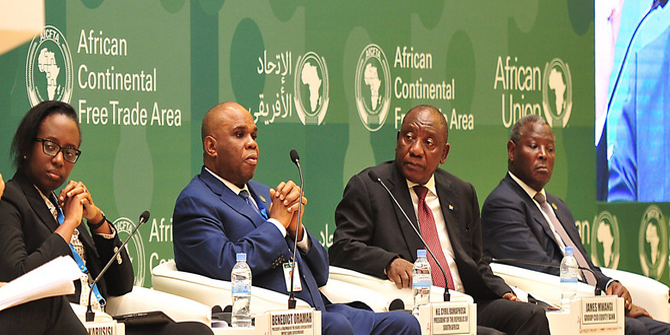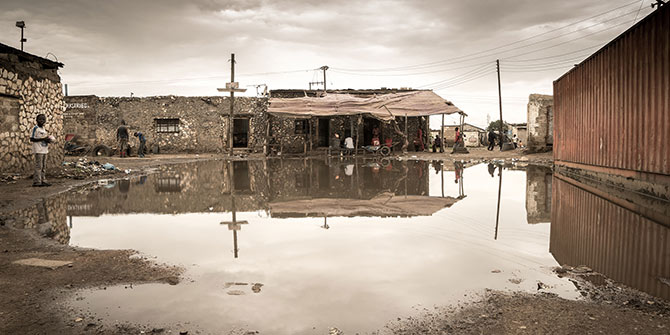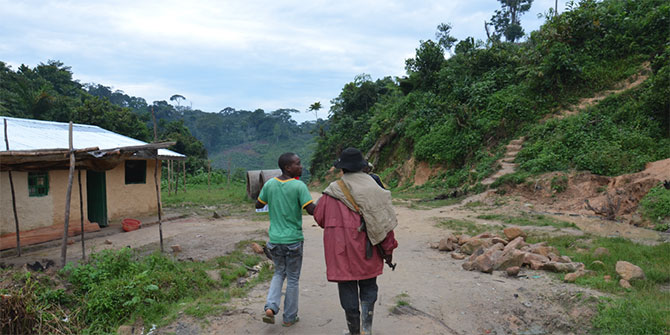As Senegal prepares to become a gas exporter, Adolphus Washington analyses the challenges ahead.
Last month Senegal’s president Macky Sall announced the discovery of the largest deep water gas fields in West Africa by the US company Kosmos Energy. Production in the gas fields can translate into a massive windfall for Senegal’s Emerging Plan, which is the government’s economic initiative planned through 2035. The offshore gas reserve extends into both Senegal and Mauritania and is estimated at 450 billion cubic meters.
This discovery prompted celebration from Senegal’s Energy Minister Thierno Alassane Sall when he stated: “This is the best news for us.”

The scramble for Africa’s resources clearly has not subsided. According to the Paris-based Institute for Sustainable Development and International Relations (IDDRI), almost a third of all oil and a quarter of all natural gas consumed in the world come from underwater areas. This recent discovery shows that Africa still has untapped natural resources. The continent has some of the most untouched, high-potential regions for hydrocarbons; and despite the recent decline in oil prices; the number of international independent exploration-and-production (E&P) operators has increased.
The prospect of Senegal becoming a global gas exporter raises a number of questions and concerns. While it provides an opportunity for the country to establish energy security, it creates uncertainties regarding Senegal’s ability to hedge environmental risks, mitigate the impact on local coastal communities, and sidestep the traditional resource pitfalls.
The Resource Curse
Talk of the resource curse has begun even before a drop of gas has been extracted for sale. The resource curse occurs when countries endowed with natural resources produce less developmental and economic growth than countries with fewer natural resources–as epitomised by African countries like Nigeria, Equatorial Guinea, Angola, and DRC.
Historically, an undiversified economy, government corruption, and mismanagement of revenue have been the core drivers that have facilitated this phenomenon.
Perhaps Senegal is better suited than most of its African contemporaries to mitigate the so-called resource curse. There has been no coup d’état or civil war since Senegal gained independence, and it has been among the most politically stable countries.
Philippe Chalmin, Professor of Economic History at Paris-Dauphine University, echoed this sentiment while identifying the correlation between Senegal’s political maturity and having no oil.
“Senegal, unlike many African countries, like Ghana and the Central Africa region, has been so lucky not to have oil. And I see a correlation with the political maturity of Senegal and the fact that since independence, there have been no coups or civil wars. This may be because there was no oil.”
Oil or not, Macky Sall’s administration has sought to fortify Senegal’s democratic institutions and rule of law. The arrest of Karim Wade, who was “super-minister” and the son of an ex-president, solidified the administration’s commitment. Wade was charged with “illicit enrichment” and sentenced to a six-year prison term. The administration has also proposed a referendum to reduce presidential term limits which has been a source of contention in many African countries.
Impact on local community, industry, and environmental risks
Senegal’s fishing industry remains one of the more controversial core contributors to its economy. For generations coastal communities have relied on artisanal fishing (using pirogues) for their livelihood.
Oumar Gueye, Minister of Fisheries, said “More than 600,000 people work as fishermen or in related industries, and 60% of the 450,000 metric tons caught annually are consumed locally.”
The industry is increasingly being threatened by illegal foreign fishing vessels that cost the country US$247 million a year due to antiquated and inadequate government management. The proposed offshore gas drilling activity also poses a threat to Senegal’s fishing industry because deeper drilling depths increase the risk of accidents, spills and fires.
Accidents like the 2010 BP deep water explosion in the Gulf of Mexico are risks with which Senegal should be concerned. The explosion occurred 40 miles off the coast of Louisiana, killing 11 crew members and injuring 17. It was one of the worst environmental disasters in US history. The rig sank and approximately 3.19 million barrels of oil spilled into the Gulf of Mexico over 87 days. The spill coated hundreds of miles of shoreline with oil and caused extensive damage to marine life, coral reefs and birds. The initial cost to the fishing industry was US$2.5 billion, but to this day the longer term effects are yet to be determined due to the complexity of aquatic life.
Another accident closer to home was the 2012 Chevron Nigeria Limited gas explosion just six miles away from the Niger Delta that killed two people. Although there was no oil spillage, the fire burned for 46 days with flames as high as 16ft over a 130ft wide span on the Atlantic Ocean. Coastal communities were temporarily relocated due to food and water contamination.
Kosmos has entered into a Memorandum of Understanding (MoU) with state-run firms of Senegal and Mauritania Pétroles du Sénégal (Petrosen) and Société Mauritanienne Des Hydrocarbures et de Patrimoine Minier (SMHPM) with the aim of enabling intergovernmental co-operation towards maximising value for all stakeholders.
For Senegal to attain full value it will need to develop substantial regulation for offshore oil and gas activities to ensure the preservation of marine ecosystems and the economic development of the coastal populations that depend on these ecosystems.
Adolphus Washington is a freelance writer in London. Follow him on Twitter @africawriting. Read more of his articles on his website.
The views expressed in this post are those of the authors and in no way reflect those of the Africa at LSE blog or the London School of Economics and Political Science.






Thanks Adolph for your overview of Hydrocarbon prospects in Senegal. Resource curse often pops up to eagerly stain a blessing that accompanies the discovery of oil or gas in many developing economies. This is a big test for Senegal and her master France. If the US Corporation is not too greedy to take away everything to IMF and World Bank, then there’s hope. I don’t know what France plans with such a discovery, it’s obvious they;ll come in and influence everything as they often do in their possessions- Francophone countries. Senegal must swiftly establish stronger institutions to manage this resource or else someone else will manage it for them.
Interesting article, but do you expect gas production to start in Senegal with the current price environment?
I highly doubt that its commercially viable at the moment. The world market for gas is already well supplied by producing countries that are likely to be considered more attractive than Senegal (US and Australia). Mozambique, which was the location for one of the biggest gas finds in the world a few years ago, is still not producing and has suffered considerable delay (ref http://www.ft.com/cms/s/0/27c165a6-91d3-11e5-bd82-c1fb87bef7af.html#axzz42OrfiGmo).